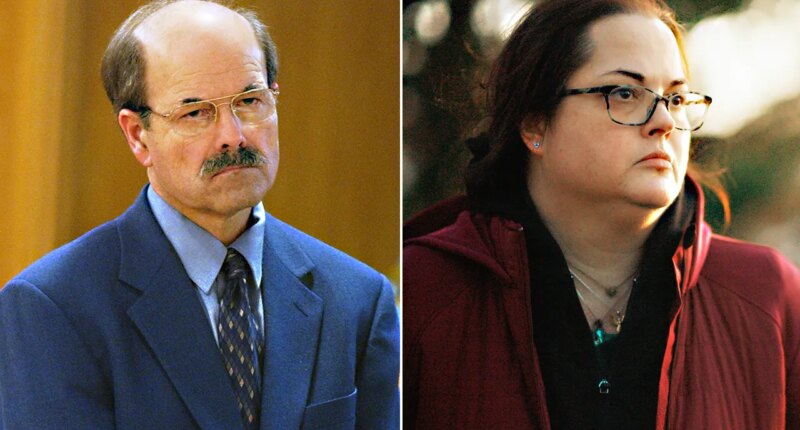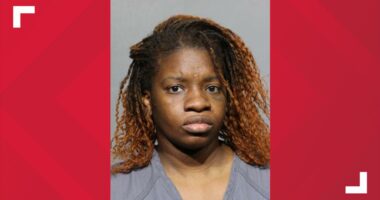Share this @internewscast.com
Almost two decades after Dennis Rader was incarcerated, his daughter, Kerri Rawson, mustered the courage to meet him face-to-face.
In 2023, this mother of two was approached by investigators to help determine if the man, who had once instilled fear in Wichita, Kansas, and mocked law enforcement during a 17-year killing spree, might be connected to other unsolved cases. Confronting the father who dubbed himself BTK — standing for “bind, torture, kill” — represented the final severance of an already fractured relationship due to his heinous acts.
At 46, Rawson, who has publicly discussed her father’s crimes over the years, is featured in a new Netflix documentary titled “My Father, the BTK Killer.” This film delves into her struggle to reconcile the affectionate father she once adored with the brutal killer unmasked by the authorities.
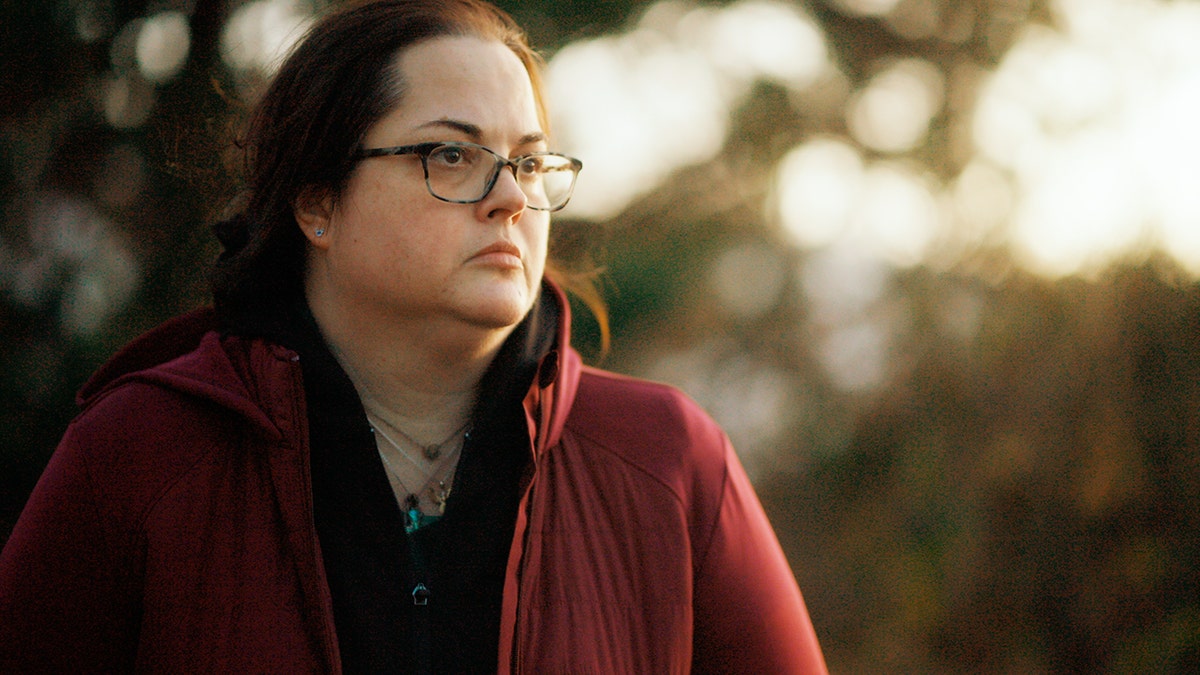
Kerri Rawson shares her story in the documentary, “My Father, the BTK Killer.” (Image courtesy of Netflix)
“Confronting her father was incredibly challenging for Kerri,” director Skye Borgman shared with Fox News Digital. “She describes leaving the prison visibly shaken after addressing issues she had suppressed for years. Her own reactions during the conversation were also surprising to her.
“She recounts moments where she witnessed him oscillate between two personas — her dad and BTK. At times, he seemed like the father she knew, but when she posed questions he disliked, he morphed into BTK.”
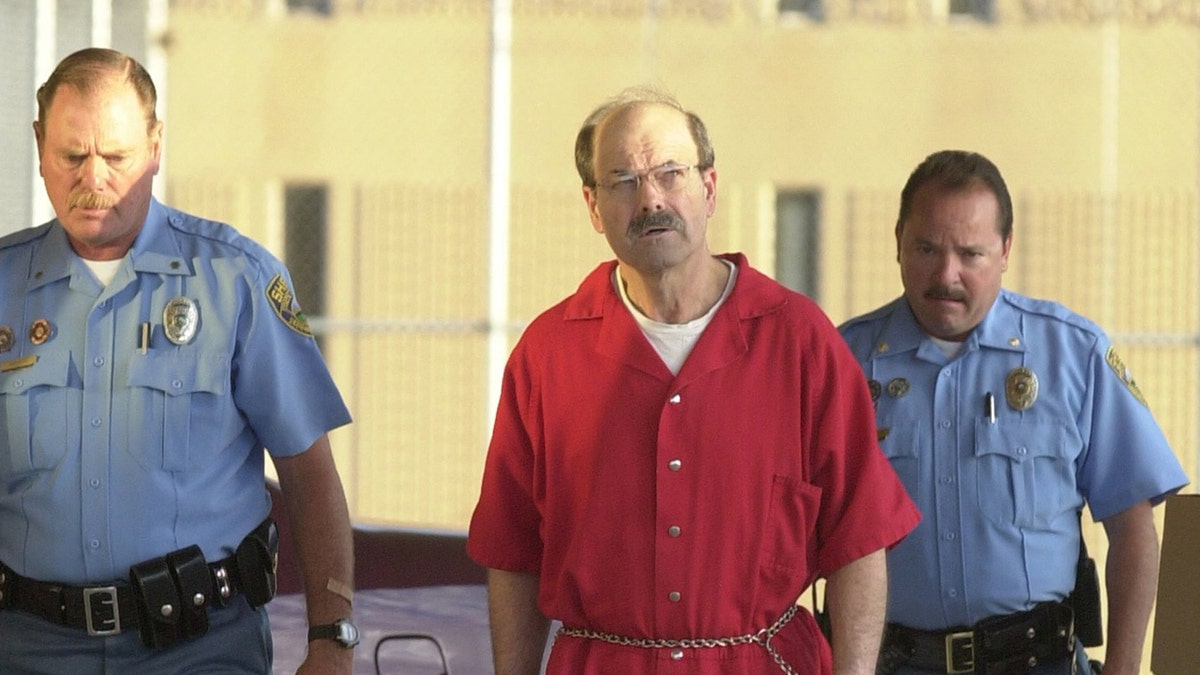
Convicted serial killer Dennis Rader is escorted by deputies into the correctional facility in El Dorado, Kansas, on Aug. 19, 2005. He confessed to 10 homicides and was given a life sentence for each case. (Jeff Tuttle/Wichita Eagle/Pool)
“Having the knowledge that she knows now about his crimes, she was able to see that more,” Borgman shared. “It was incredibly hard for her. But at the same time, I think it gave her an ending to a chapter. She’s OK with not seeing him again. She’s OK with not talking to him again. Whereas before, there was a question mark there — do I want to see him? And now, the question is answered.”
WATCH: OKLAHOMA SHERIFF INVESTIGATING BTK HAS WARNING FOR COLD CASE KILLERS
Rawson and two other investigators were hoping to see if Rader, now 80, could offer information about cold cases for the Osage County Sheriff’s Office.
“If my father has committed more murders, then we really need to get to the bottom of the truth, and we need to get to it before my father passes away,” Rawson said during filming.
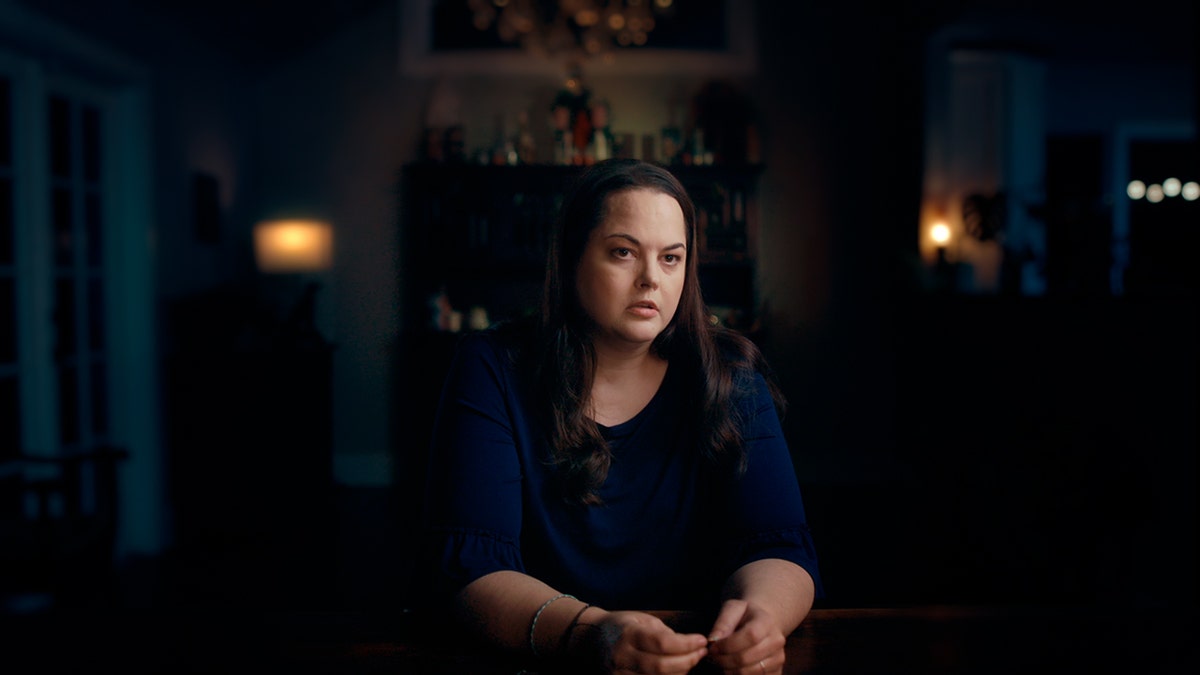
Kerri Rawson wrote a memoir, “A Serial Killer’s Daughter,” in 2019. (Courtesy of Netflix)
In the documentary, Rawson questioned whether she may have been sexually abused by Rader as a child. She had read one of his notebooks from the 1980s, where he wrote about a bondage game in a bathtub. It included her name.
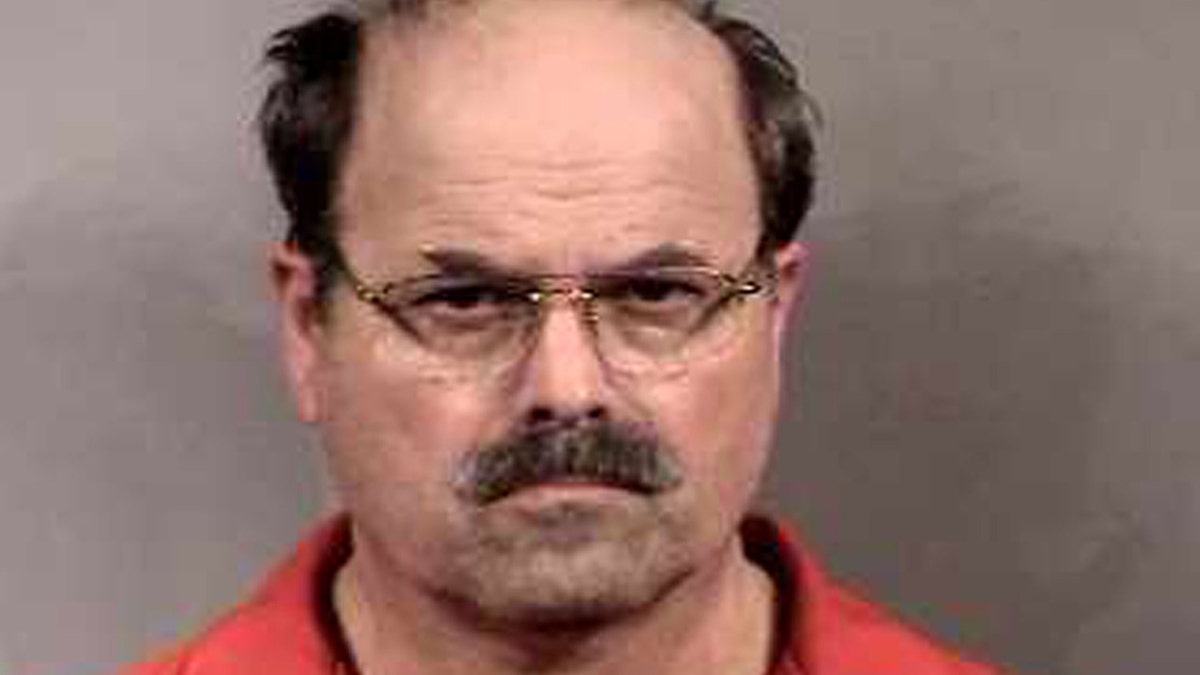
Dennis Rader — known as the BTK Killer — was arrested on Feb. 25, 2005, in Park City, Kansas. (Sedgwick County Sheriff’s Office via Getty Images)
Investigators warned her not to ask Rader about her suspicions, fearing he would shut down and refuse to answer questions.
“He’s frail, he’s in a wheelchair, and he was literally crying, so happy to see me — like, over the moon to see his kid,” Rawson recalled in the film.
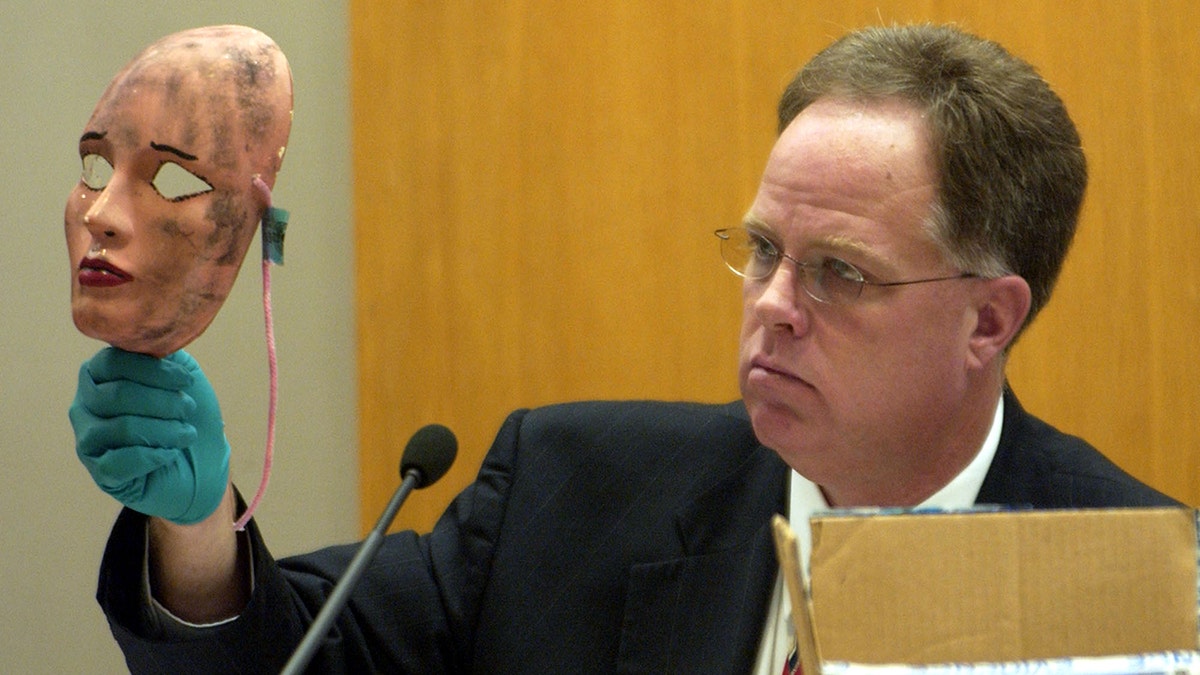
Wichita Police Det. Sam Houston shows a mask, which was used in one of the crimes, during Dennis Rader’s sentencing hearing on Aug. 18, 2005, in Wichita, Kansas. (Bo Rader-Pool/Getty Images)
When Rawson asked him about the cold cases during their three-hour conversation, he told her, “What are you talking about? Can’t we just reminisce? Can’t we just have a father-daughter — can’t we just have memories?”
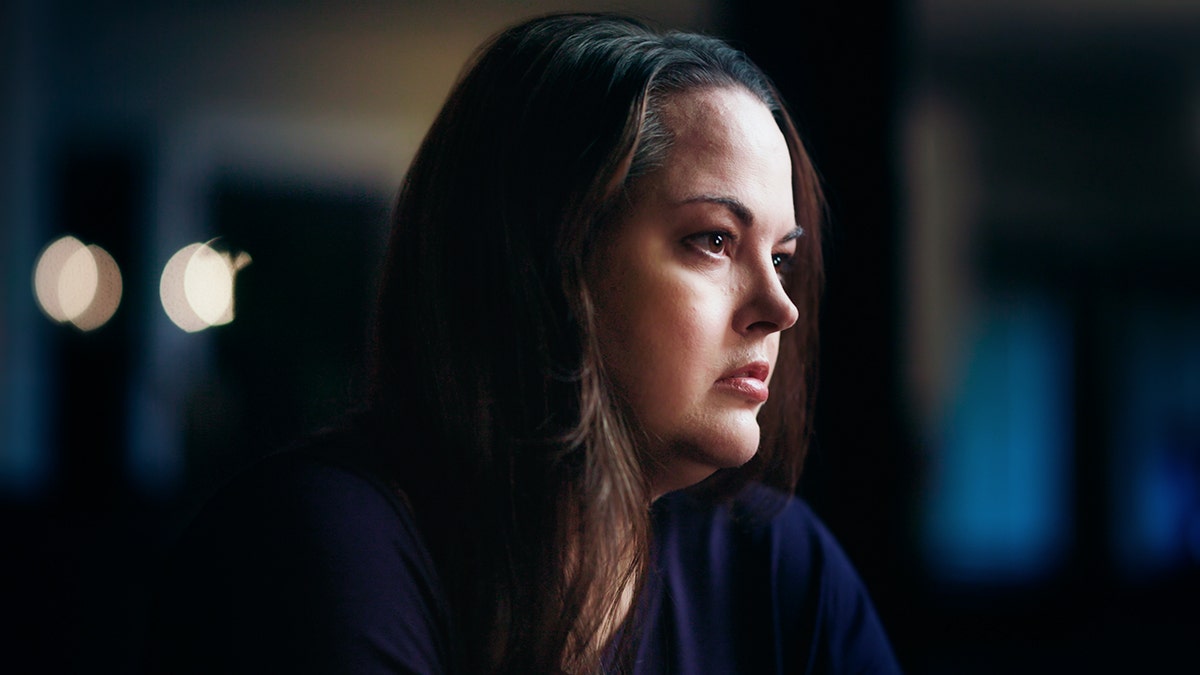
According to the documentary, Kerri Rawson went to visit her father in prison for the first time in nearly 20 years. (Courtesy of Netflix)
Then, he “turned on a dime,” said Rawson. When she asked him about his journal entry, Rawson said he told her, “That was just a fantasy. I never touched the family. You’re just making stuff up about me to be famous.”
Rawson described unleashing “a blast of 45 years of anger” at Rader as she went “completely off script.”
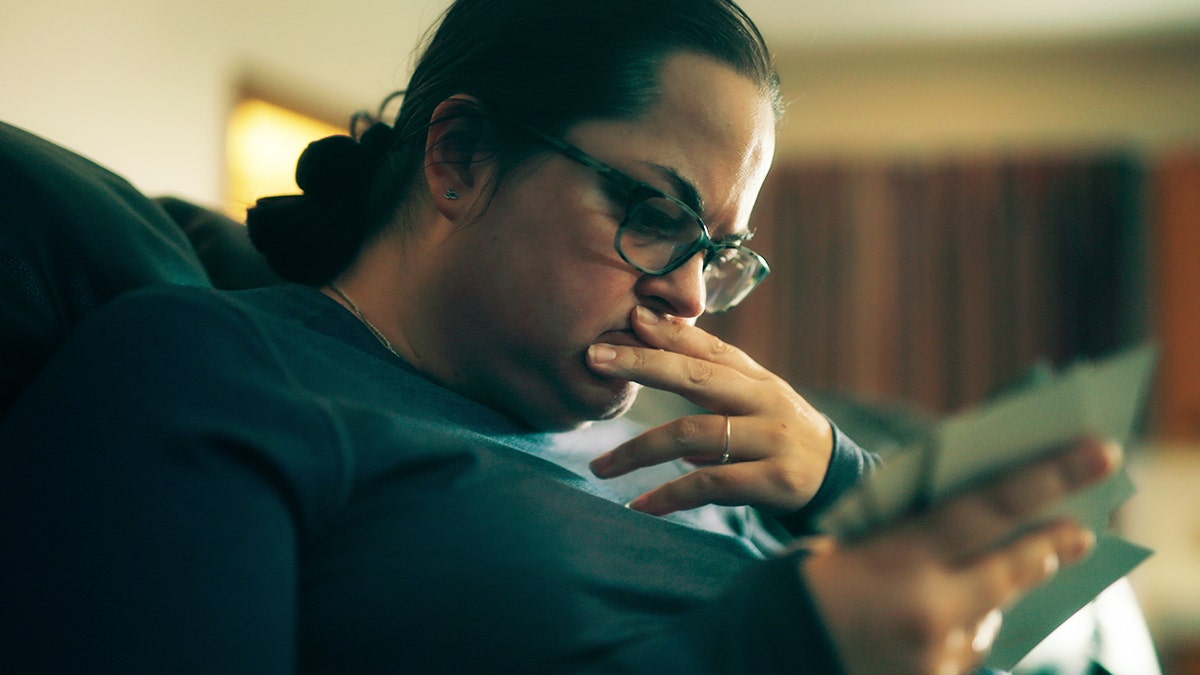
Kerri Rawson said in the documentary that she and her family were blindsided when Dennis Rader was finally arrested. (Courtesy of Netflix)
“He was literally gaslighting me, manipulating me, lying to me, five feet from me,” she said. “It was like I wasn’t talking to my dad. It was like I was talking to a subhuman. What everybody talks about — him being a psychopath and a narcissist and not wanting to be around him — I had still been able to find humanity in him. And then, I wasn’t able to.”
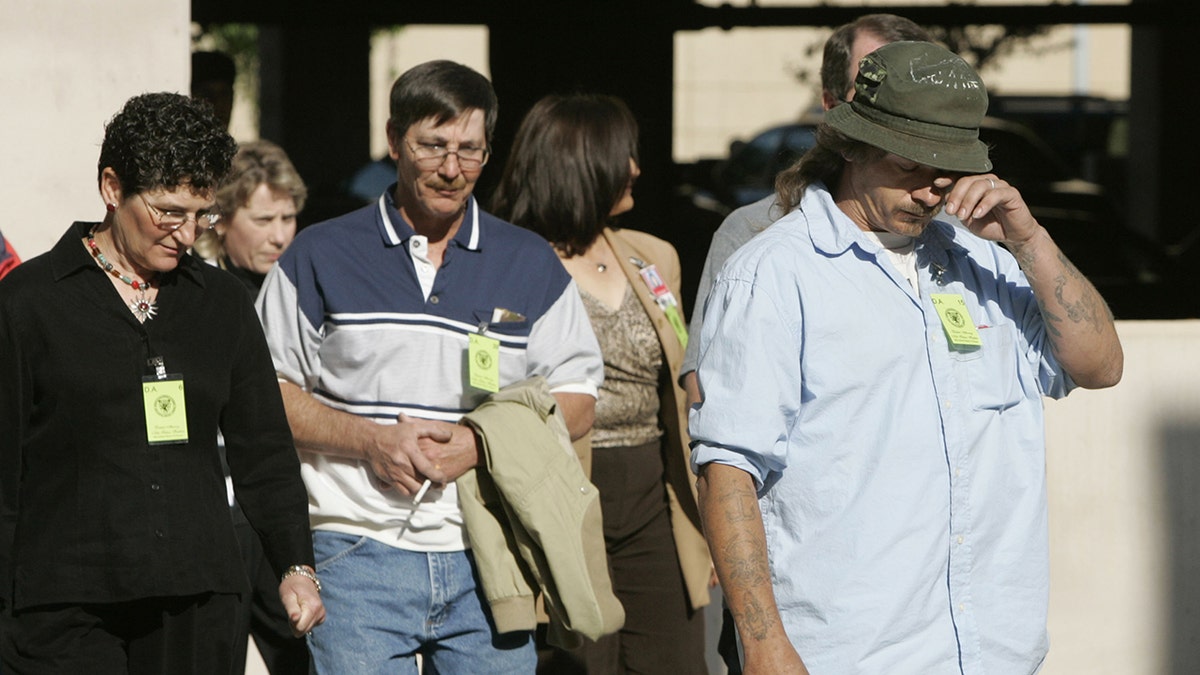
None of the loved ones of Dennis Rader’s victims, seen here in court on May 3, 2005, in Wichita, Kansas, participated in the film. (Larry W. Smith/Getty Images)
Borgman told Fox News Digital that the experience left Rawson so shaken that she never wants to see or speak to Rader again.
“I think Kerri thinks about her dad as two different men,” Borgman explained.
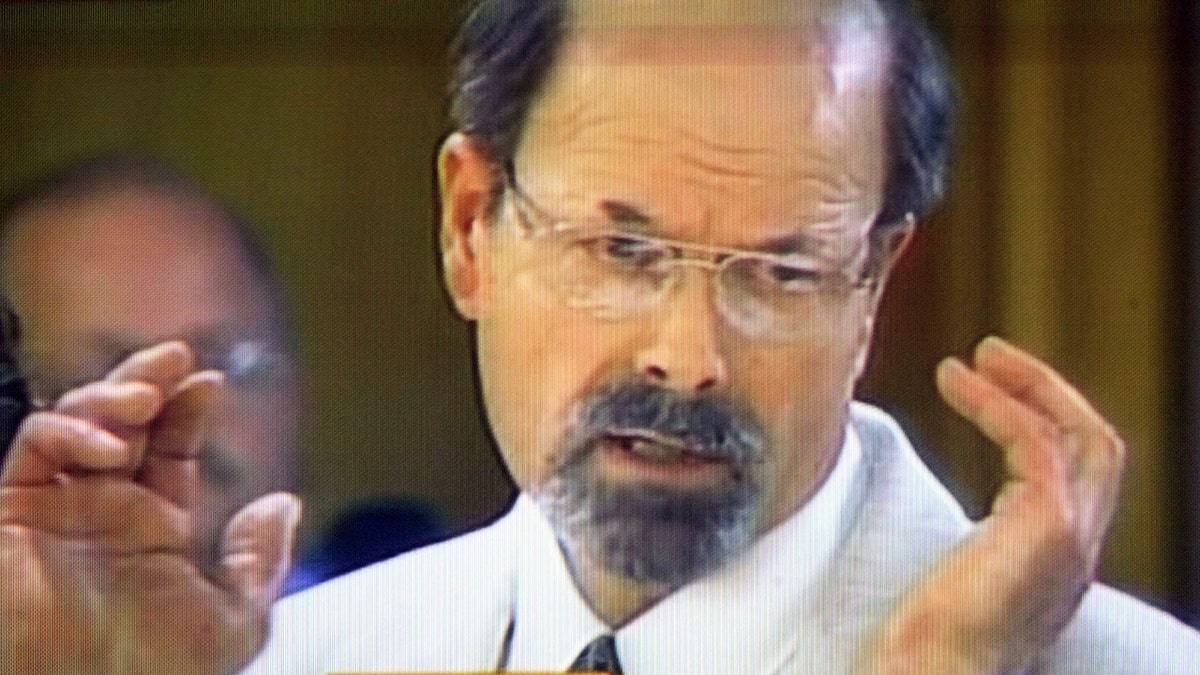
Dennis Rader is shown in this pool video feed as he pleads guilty on June 27, 2005, to 10 murders over 30 years in the Wichita, Kansas, area. (KRT Photo Pool)
“She talked about him being two different men. In her own words, she said she had a good childhood. They explored, they went places, they camped together, they had great family vacations. So those memories of her father, I think, she was able to hang onto them because she was able to separate that man from BTK. But as far as I know, they’re no longer speaking. She got to the point where she knew she needed to separate herself from him to continue on her healing journey.”
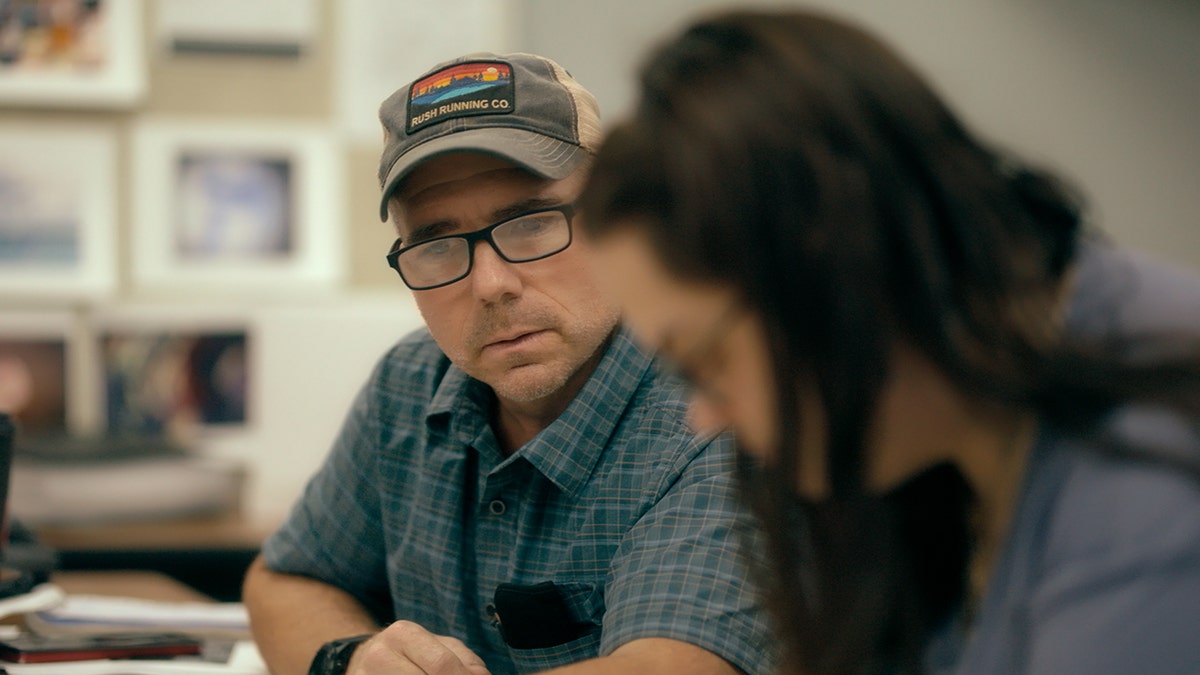
Kerri Rawson is working with investigators to see if Dennis Rader could be connected to other cold cases. (Courtesy of Netflix)
“They’re not speaking anymore,” Borgman shared. “I think a lot of that communication was her trying to get information out of him. She realized that probably was not going to happen.”
Rader played a cat and mouse game with investigators and reporters for decades before he was arrested in 2005, The Associated Press reported. The former church leader and animal control officer confessed to murdering 10 people between 1974 and 1991 in and around Wichita. He is now serving one life term for each of the 10 people he was convicted of killing.
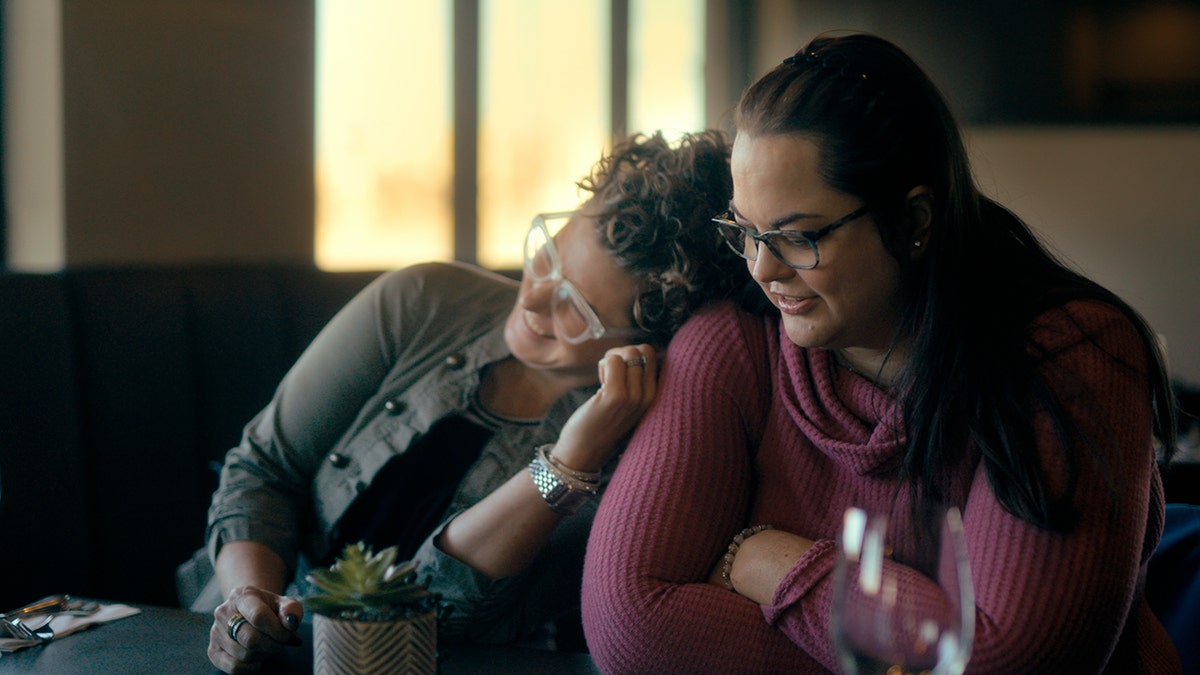
Kerri Rawson is seen here with her longtime friend, Andrea Rogers. Today, Rawson serves as an advocate and mentor for people whose loved ones are violent offenders. (Courtesy of Netflix)
Loved ones of the victims declined to participate in the documentary. Borgman said she made sure her film featured their voices prominently.
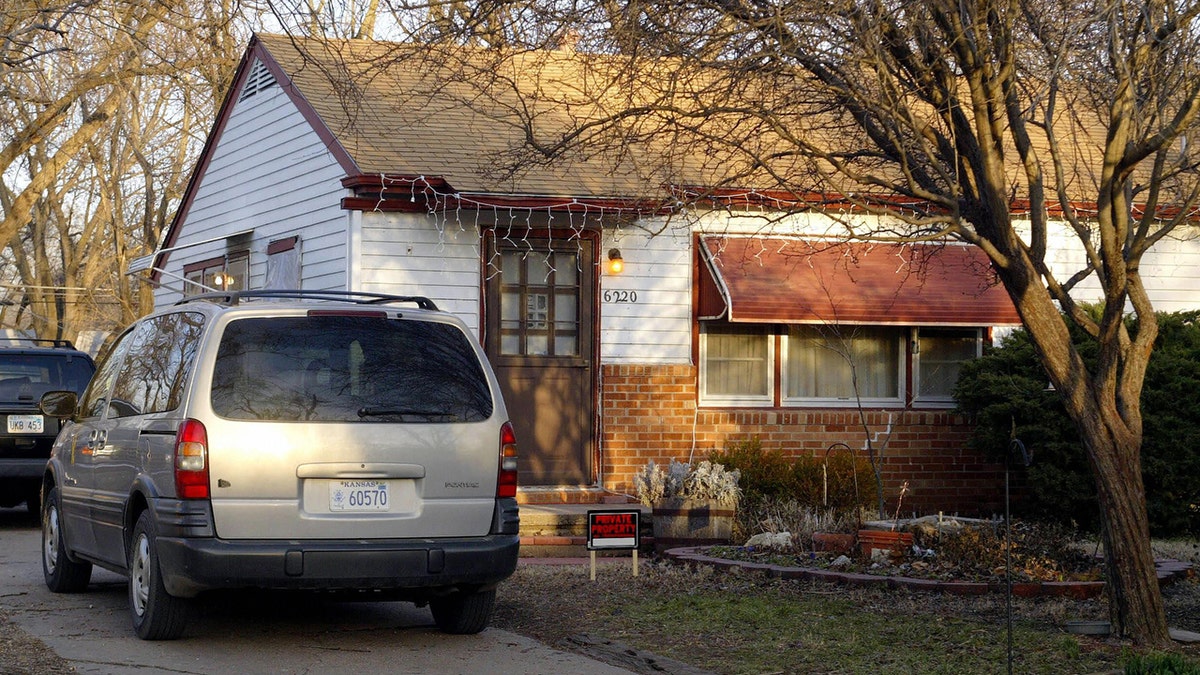
This March 2005 photo shows Dennis Rader’s home in Park City, Kansas. (Carl De Souza/AFP via Getty Images)
“We found the reasons for them not wanting to participate are very different,” said Borgman. “They’ve been reached out so many times, especially over the last 20 years. But the film shows the ripple effects of a crime like this. I hope the victims’ families feel represented. It was always our intention to make them equal participants in this story.”
Borgman said that when looking back, Rawson wondered if her father’s sudden bursts of anger were glimpses into his double life. Rawson is aware she may never know the truth. Throughout the film, Rawson stressed that she and her family had no idea about her father’s crimes and were blindsided when it came to light.
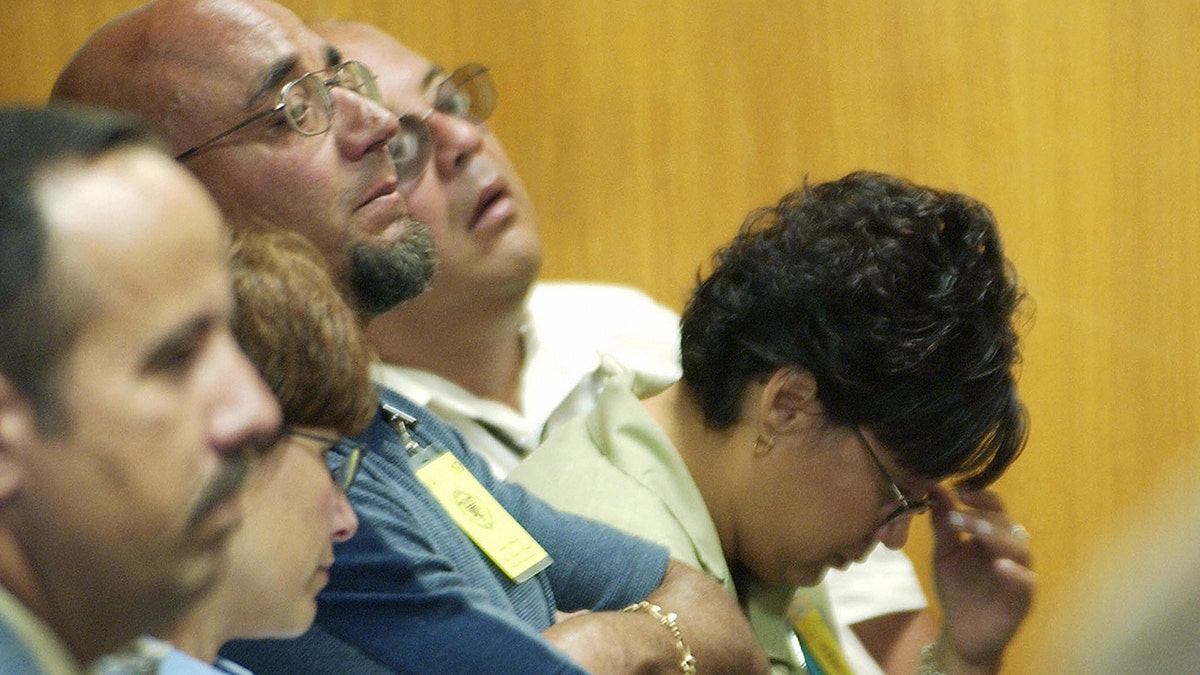
Charlie Otero (second left) and other members of the Otero family listen to testimony that described the 1974 murders of four of their relatives on the first day of the sentencing of Dennis Rader, the admitted BTK serial killer, at the Sedgwick County Courthouse, circa 2005. (Bo RaderAFP via Getty Images)
“When she was a little girl, Dennis would have these outbursts,” said Borgman. “She just thought, ‘Well, that’s my dad. He can get angry from time to time. He had a bad day at work, or the dishes weren’t cleaned when he came home.’ I think in looking back, she has more perspective about the surrounding circumstances that may have gotten him to be that way.”
GET REAL-TIME UPDATES DIRECTLY ON THE TRUE CRIME HUB
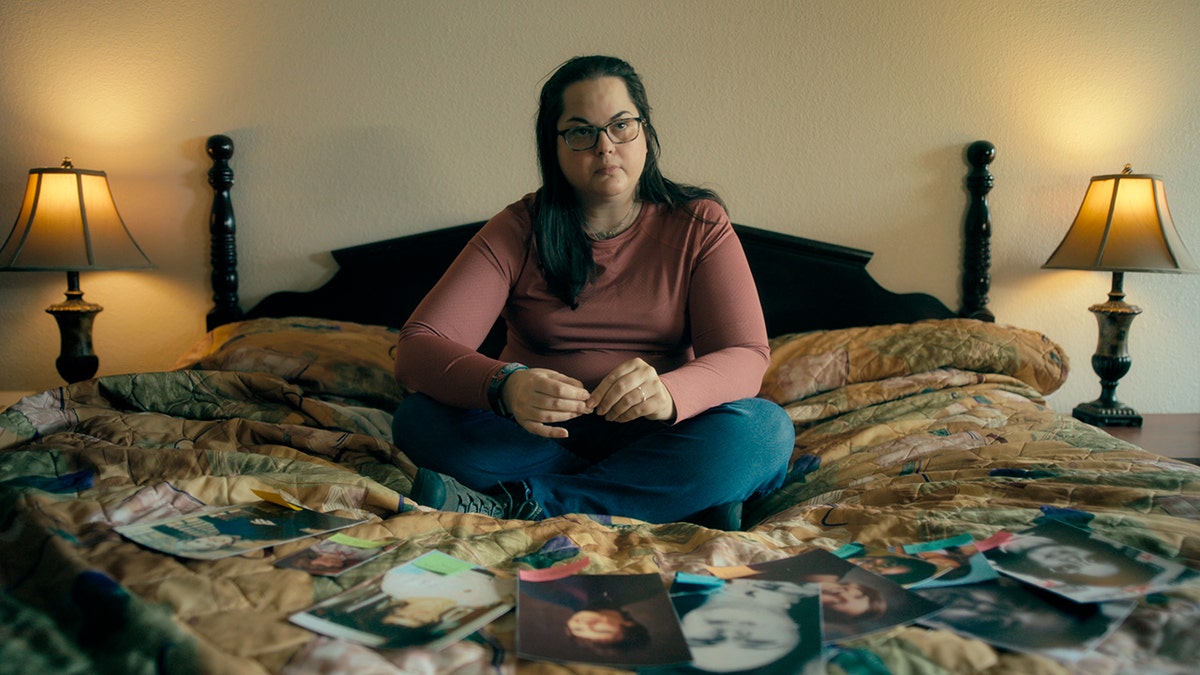
Kerri Rawson is still grappling with the fact that her father, Dennis Rader — once a doting parent — is a convicted serial killer. (Courtesy of Netflix)
“It may be similar to how Kerri views her father as two different men,” said Borgman. “I think he was able to separate himself and come up with these lies where he had been able to sneak away. I think it provided something in him that he was able to hide when he came back home. And look, I’m not a psychologist. I can’t diagnose him, but I do think he got something out of this — that it provided something that he wanted and needed. And once he was able to get that, he was able to return to his role as a family man, a father figure.”
Today, Rawson is an advocate and mentor for those who have discovered that their relative is a violent offender. Borgman said the experience has been “a double-edged sword” for Rawson, who wants to be recognized for more than just being Rader’s daughter.
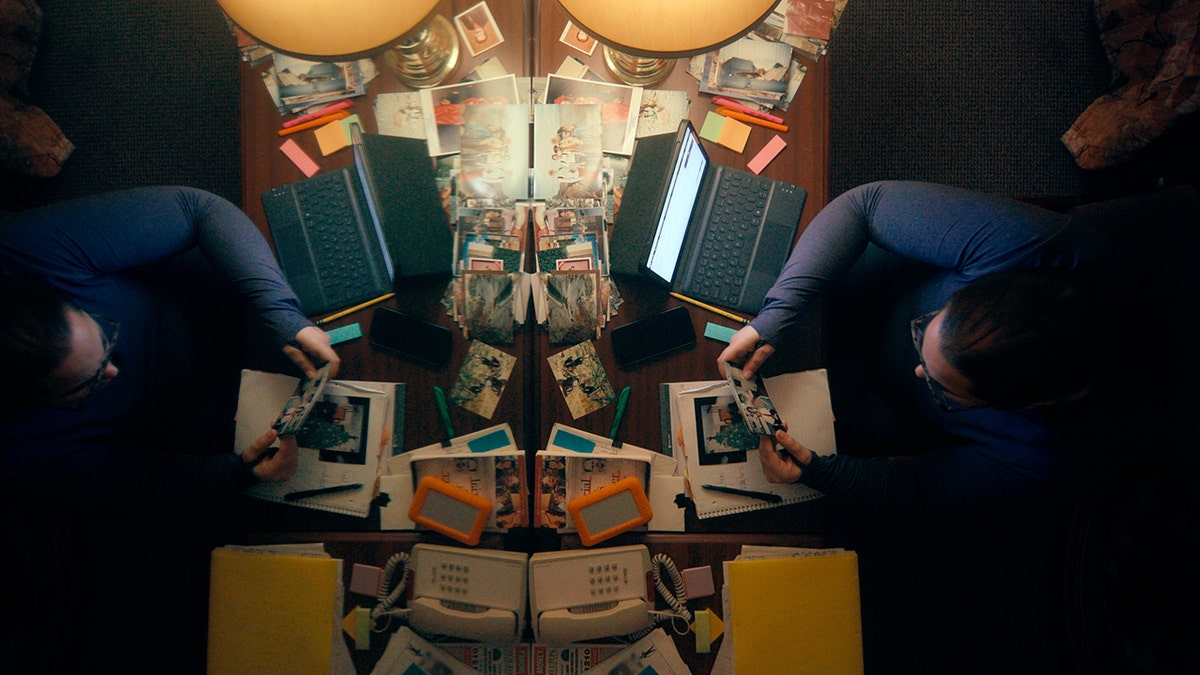
Kerri Rawson, seen here during filming, still has unanswered questions about her childhood. (Courtesy of Netflix)
“The investigation with Osage County hasn’t really produced any evidence,” said Borgman. “[But] it’s required Kerri to dive into her father’s crimes. I think what’s healthier for her is when she’s working with other families and bringing perspective on what it’s like to be the daughter of a serial killer. She can speak to what a family may be going through and how hard that is, how the backlash and violence thrown at the family is a real thing.”
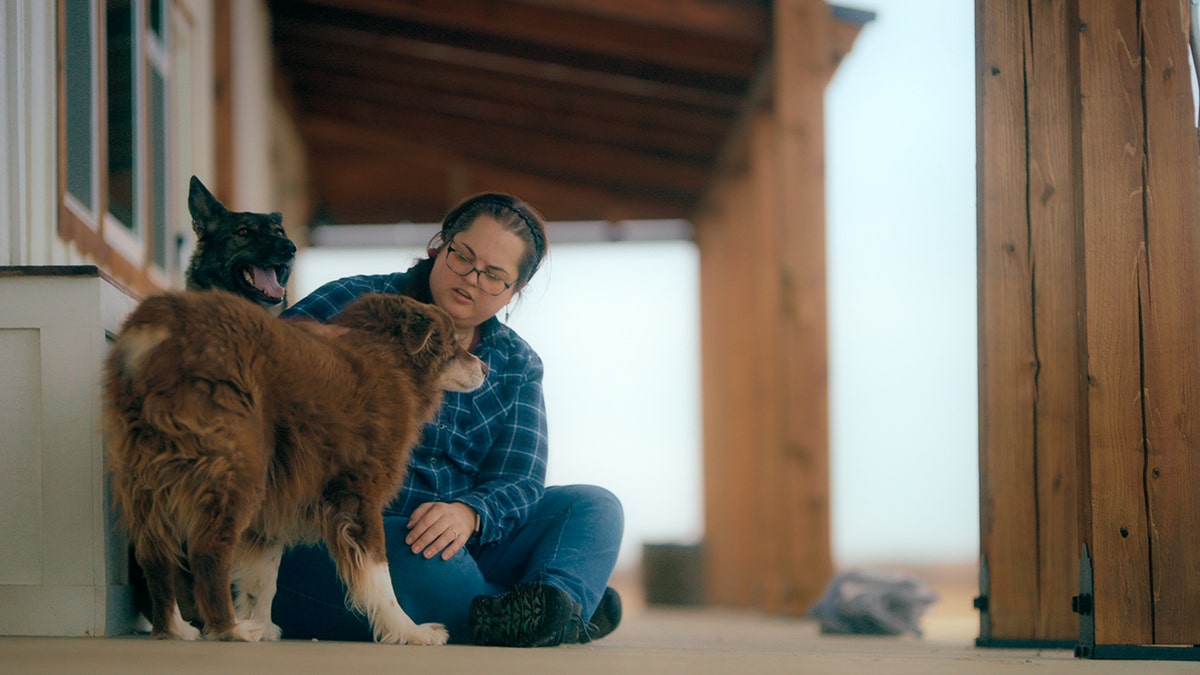
Kerri Rawson, a married mother of two, lives in Michigan. (Courtesy of Netflix)
In the film, Rawson shared that since speaking out, she’s estranged from her mother and brother. Still, she remains hopeful about her future.
“I think that’s something she feels incredibly dedicated to doing — helping other families in similar circumstances,” said Borgman. “If she can ease somebody else’s pain, she’s going to do that, even if it causes her pain. And I think it’s largely because she wants to do something good just to take away a little bit of the bad her father did.”
“My Father, the BTK Killer” is now available for streaming.
